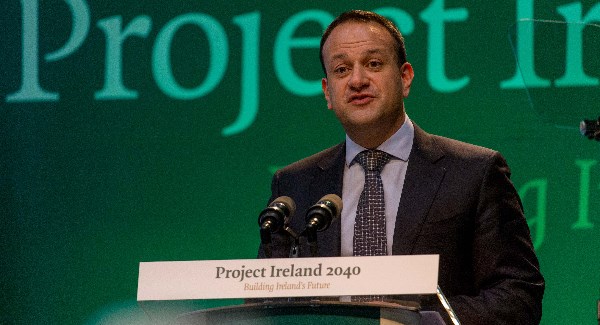There will be three new hospitals, 500,000 new homes, new transport links to Bray, Lucan, Finglas, Poolbeg, €1 billion for flood defences, new ambulance bases and goods for everyone.
There is one catch. It will not all come ‘on stream’ until 2040. By which times Varadkar’s Strategic Communications unit, which is spinning this story, will have departed the scene.
How often have you heard media commentators attack People Before Profit about their ‘fantasy economic’?
We had the temerity to suggest how €15 billion a year could be raised in extra public revenues through a radical tax strategy based on re-distribution.
We costed a series of measures such as increasing the rate of corporation tax, changing the rate of employers’ PRSI, imposing a wealth tax and increasing stamp duty on sales of commercial property. You can see our detailed budget plan here.
Yet Varadkar’s government pluck figures out of the air and he does not state exactly how resources are to be raised.
Instead of critically examining this pretence at planning, the mainstream media frames the issue as a debate between small town rural Ireland versus Dublin. Varadkar is portrayed as a moderniser standing up against ‘parish pump’ politicians.
Nothing could be further from the truth.
The reality is that spatial development in Ireland occurs in a chaotic fashion where there is little provision for public services.
Take two examples.
The greater Dublin area has grown to include 40{239d30f98c9f1658382d6173e80453fa40137ba7d875cc88a34cc6d8ea475d43} of the Irish population. Yet previous government plans had predicted more ‘balanced growth’ in the regions. IDA policy, for example, was tilted towards giving extra grants to multi-nationals who established on the Western seaboard.
But it all came to naught because the Irish economy is driven by a greed for profit. As the nature of Irish capitalism shifted from building up a manufacturing base towards greater reliance on finance and property, investment crowded into Dublin.
The city is now choking – almost literally because of the poor air quality due to increased traffic – because there was no real planning.
Or look at the scandal on broadband to rural Ireland. This has been promised by successive governments. But the privatisation of the state owned telecommunications company, Telecom, meant that broadband development became dependent on the activity of for profit companies.
Instead of investing in broadband, they played a series of games while refusing to make any serious investment.
Genuine planning requires control of economic resources. That can happen in a democratic socialist society but as long as we live in a neoliberal country, planning is simply a form of fantasy politics.











